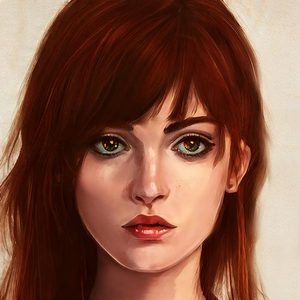The sibling suns cut red shafts through the storefronts. The fire had snuffed itself.
With dusk, the mall plunged into full dark.
The dirt parking lot turned into a black labyrinth. Engineers had designed Korvilene’s vehicles for harsh weather, yet time judged all. A mix of compact and heavy cars congested the lot; a graveyard of the broken down and rusted.
Dreadmoss overwhelmed aerodynamic frames with black, needled veins. Some models were tall, and others short, obtuse, compact. They rarely had hard angles. The friction orbs that lined the bottom of every vehicle were sunken into the ground. Corrosion and build-up rendered their control sensors useless.
Someone had busted out most of their windows. One of Usvild’s daughters had dug into the mud for larvae on a warm dawning and returned home with glass shards gouging her fingertips. He had to sacrifice her hand to infection. From then, he prohibited access to the lot.
A sliver of false hope remained alight beyond the Bayona Cherished Forest. The skyline of Sudbina glowed a foggy orange, rising higher under perpetual construction. Lenith only knew the city from horror stories her father told. The law forbade people like Nena Vonch or Usvild’s life mate and daughters from entering.
Herielt explained it as post-acceptance. Fearing external cultures, the new regime favored loathing and bloodshed.
In their youth, Lenith and her brother pretended to walk the city streets from Emeray Hill. They said sentient insects crawled within the colossal, orange particle shield.
There was no evidence for this claim, only youthful speculation. Everyone knew what those structures held. Creatures far more dangerous than insects, monsters, and nightmares. The Chimayri were humans. Kin. The same genetic components as Lenith.
She always felt particularly safe on that hill. It made her value being on the outside, in the Gray Area, despite the stench of broen stalks growing on the slope. Her father still had a strong mind. Her brother still slept in a bed across the room from her. What mattered most was always within reach. She was home.
All that remained. Memories.
Usvild had allowed the Thaymen remnants refuge there. They had called the kitchen provisions shop home before it burned to the ground. The fire had blackened cheerful walls. Thick soot clung to her shoes. She brought a sleeve to her mouth and maneuvered around melted shelves.
Lenith had slept on the cutlery display. Her bed looked more like a black sarcophagus, surrounded by a procession of coals and ash. Herielt’s bed was the same in the rear office, where mismanagement had not gone on for seventeen and a half years.
A decent haul of utensils still hid in an airtight supply vault under the floor. It was their special stock, hoarded and traded when necessary.
Lenith paced the supply closet. She dragged the ash and soot with her shoes, clearing the way to open the vault. The rubber handle was cool to the touch.
Knives, forks, plates, dining sets, glasses, tools, pots, pans, and a novelty plush. She scooped the last one out like a tragic survivor, holding it close. Her brother had adored the cute beast, despite not grasping the concept.
She danced the furry, fawn-colored plush back into place. Oversized, floppy ears and forking antlers stuck out from the top of its head. Two black buttons served as eyes and a gray gut contrasted the rest of its body, plump with stuffing.
The plush had started as a gift to Lenith. It transferred to her brother Rejund despite being six-years her senior.
“I dunno why you like that thing,” Rejund had said, ten years old at the time. “It’s silly. Looks nothing like a kisavil.”
“Of course it’s silly.” Lenith oscillated the ears with occupied amusement. “It’s a novelty.”
“I’ll believe your word.” Rejund gestured to bring it closer.
“It means, like, dumb but funny,” Lenith explained, handing the toy over. “Novelty. Novel.”
“Like a tome? That makes no sense,” Rejund said. He examined the stitching that held the creature together. He became quiet when he felt dumb, which seemed to be an increasing amount of the time.
His refuge in silence started around the time that Lenith began to learn. Abstract geopolitical quarrels like the Division of Kahli made sense to Lenith. She ascertained the roots of the Theological War long before Herielt mentioned it.
Meanwhile, Rejund struggled to grasp how the Chimayri had changed the names of the ten cycles of the year. He failed to remember that days were thirty hours long. The Thaymen family had misdealt minds.
Lanterns twinkled, bathing the cooking fountain and tables in sepia hues. The patio’s long boards shined under a full moon.
Of all the utensils stowed away, Lenith only brought a slaughter knife. The notched blade whistled as she swung it through the air. A curved point at the end cut the night.
Lenith avoided the cooking fountain. Unlike most of the camp, she detested the odd, rusted taste left in the meat. Something about preparing raw food under the open sky bothered her.
She was a pale woman, enhanced by the moon’s sallow radiance. A chill reddened her sloped nose. She pressed chill-numbed fingertips against her favorite shirt.
Two lovers tangled against each other next to the fountain. Their tongues waged a war to see who would choke first. A stalemate.
“A bit frigid for late Tiid,” Lenith said, passing by.
The couple slobbered on each other, not taking the time to recognize the woman. Despite her disgust, Lenith yearned for the passion the two shared for each other. It had been almost five years since she last felt someone else’s touch. Rooftop solar collectors droned, feeding the mall with unending life.
The Thaymen family had traveled the outskirts of Sudbina for years. Lenith cared less with every new band of courageous survivors they met. She waited for the day to leave each impoverished town, camp, or lodging.
The mall had lasted much longer than expected. Four years. She had little excuse to avoid conversation, but she did, and they could all live with it. On the wrong side of the particle shield, bonds were frail and fleeting, much like everything.
The mall once flourished. Commerce had fueled the heart of Korvilene. Back then, the people fought against unforgiving seasons. Repairing any stray damage during a harsh year was part and parcel.
Nothing too severe. Far from the worries of a civil war.
Against untended time, rot softened and sank the structures. Scraps of advertisements clung to the last of their adhesive on eastward walls. Silhouettes of men and women in the middle of dancing or in peril, depending on what the poster sought to evoke. Faded images of high quality jewelry still advertised grandeur. These servants reminding her of a decent, comfortable, and unachievable past.
She tapped Rogdul’s hulking chest at the back door. She knew he was the Rogdul in the Feasting Grounds. The word meant ‘Invader’ in Roldre, the language of Wyloworth.
Uncomplicated fearmongering.
Lenith thought her father might have taken her to one of these eateries, when she was no older than three or four. Memories failed to stick at such a young age.
“You’ve stood out here all night, and for what?” she asked her statuesque friend. “I sure hope they pay you mass phinnies.”
Inside, a single lamp hung from the ceiling. It struggled to click on. Once awoken, it bathed the kitchen in a nauseating, anemic light. The residual stench of a million old meals greeted Lenith inside. She set the slaughter knife on the central preparation island.
Vigorous cleaning and frequent maintenance kept the last oven alive. A whole section in the utility closet brimmed with stove parts.
Three other ovens had once taken up the wall, side-by-side in cooking camaraderie. It took four able-bodied adults to dump their remains in the parking lot, to rust with the abandoned cars. Blackened outlines remained on the white walls.
She rummaged through the overhead cabinets. Communal pots, pans, and utensils dangled above seasoning jars and oil bottles. Lenith preferred to use her own. She despised borrowing other people’s things. It felt like an invasion. She laughed at the thought, remembering where she was. A door was all that kept her from Invader’s Feasting Ground, an atrocity of décor.
She set out the pots and headed to the dining room. The lights needed waking. Her father would arrive, as he always did, about five minutes late.
A horrific depiction of Wyloworth swallowed her. Fake trees and plants choked the booth dividers. Branches arched over the tables. Unrealistic vines swooped from the ceiling. Blue skies drifted along the walls. The right wall even had the suns rising together.
Tree trunks held tables and chairs. Thick, blue leaves of synthetic material covered the seats.
More brown-skinned statues with ugly faces guarded aisles and the unisex restroom. Korvilians taught their children that these fiends yearned to steal their food. Despite knowing the lie, Lenith felt a shiver when approaching one. She was an instrument programmed to fear the dark, no matter its nationality.
Lenith had only seen pictures of the real Wyloworth in history tomes. Framed and annotated chaos, with Wylos shredded and obliterated by Korvilian firepower. So much blood, spilled in a faraway land, for a fruitless war.
Still, there was something attractive about the tragic archipelago. Those brief glimpses of silent crags, peaks, and plateaus provided years of imagination. Trees were scarce. No vines swung down. No brutes in sight. Neighborhoods carved from stone. The Wylos were normal people in abnormal circumstances.
As Lenith entered the dining room, the lights were already on. The man responsible sat at the far end of the booths. Smoke swirled out from a long Red Meopa stick burning between his puffy lips. He was a plump man with a childish, black Mohawk sticking out from atop a round face. They called him Iggy, short for Ignacious, and he had set a fire.












Comments (0)
See all